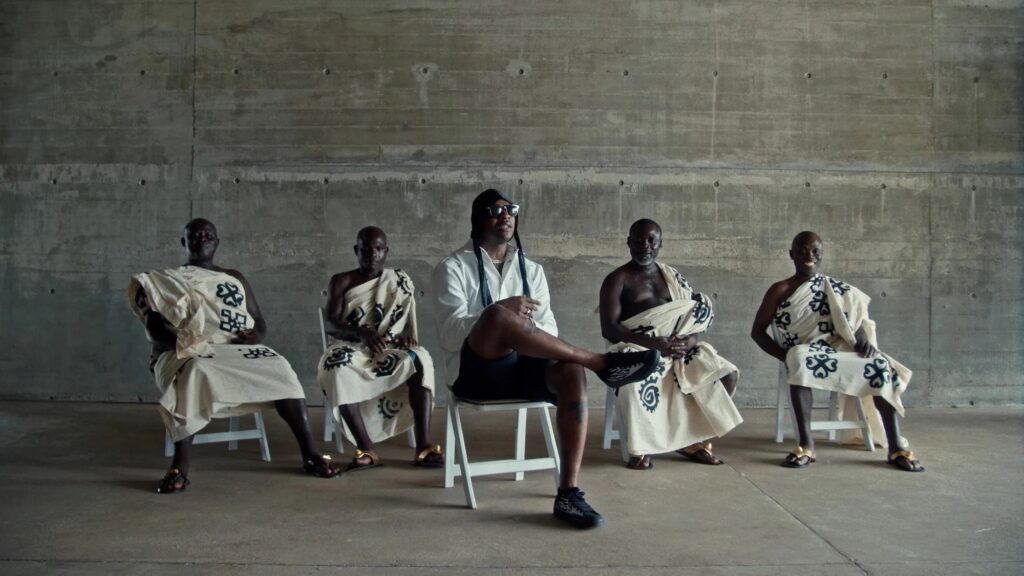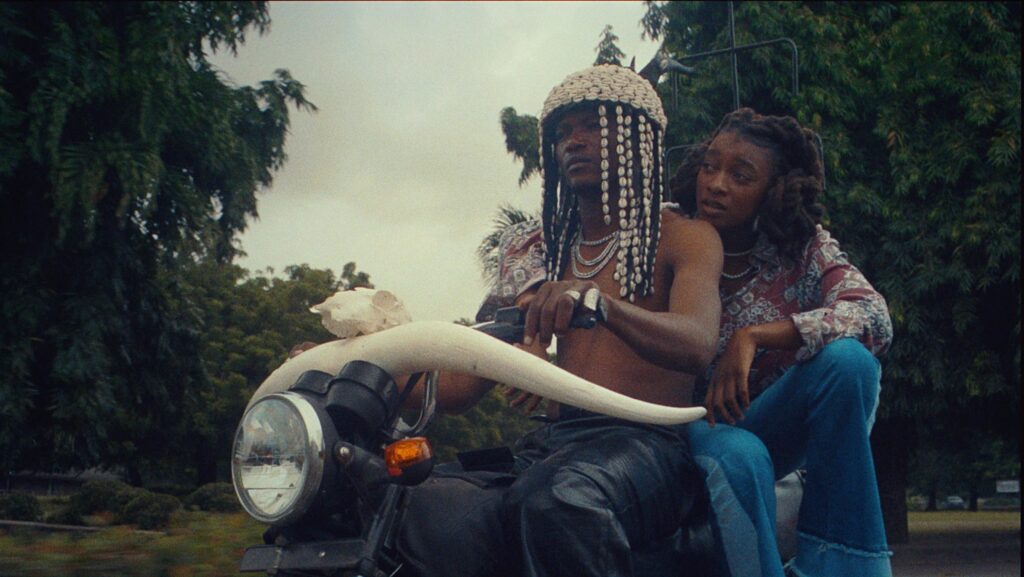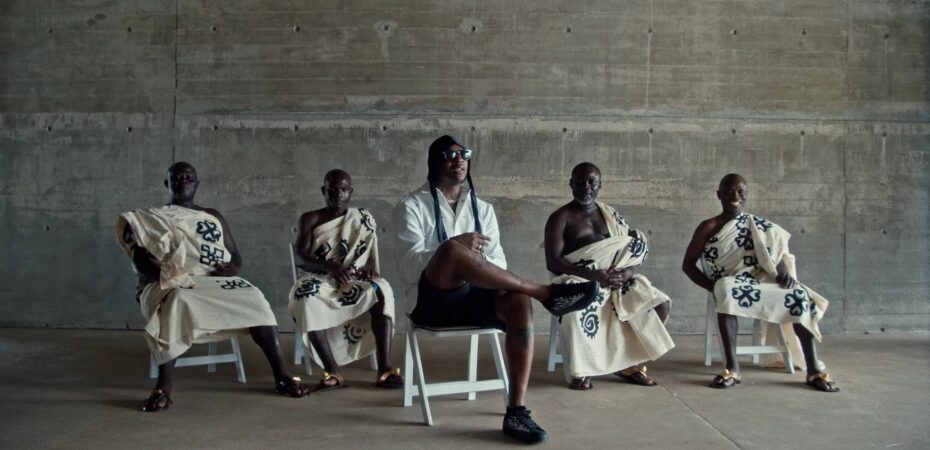CHOP speaks to the leading director on authentic representation for the African diaspora
By Octavie Drevon
Born in Holland, raised in London, and later immersed in the vibrant culture of Ghana, he was sent there by his mum to attend the traditional Ghanaian boarding school experience. Ebeneza Blanche embodies the essence of multiculturalism in his work. His filmmaking journey began as a quest to capture the essence of his West African roots and share them with the world. This dedication to authentic storytelling shines through in each of his projects, dismantling misconceptions and celebrating the richness of West African culture.
Blending his diverse background with a commitment to real and honest representations, Ebeneza has emerged as a pioneer in the industry. From collaborating with music icons like Skepta and Wizkid to collaborating with fashion giants like Chanel and Gucci, he infuses each project with nostalgia, afro-centricity, and sartorial flair.

In pursuing his artistic vision, Ebeneza shares insights into his creative process for the “Point and Kill” music video by Little Simz. “I got this idea that I wanted to tackle police brutality and Nigerian stereotypes. Hence, I wanted to position Little Simz in a place where you’d see people celebrate as an independence,” he says.
“I think a big inspiration for that was the Ghana independence movement; it felt very liberating, and parties back then seemed so exquisite, so I thought it would be a great feel to incorporate it into my work. I feel like Little Simz was the perfect artist to work with to bring this to life,” he reflects, highlighting his intentionality in addressing social issues through his art.

Reflecting on the cultural impact film has in London, Ebeneza is fully aware of the impact music also has in shaping perceptions of African identity in London, “When J Hus started coming out with his new sound back in 2014 or so, it was interesting because he was one of the only artists that went sort of mainstream with his slang, where he used quite a lot of African sayings and then he would switch to his London accent.,” he says.
“People started to talk like that, people got into it, speaking very English with a London accent and putting in some African words and an African accent; it gave birth to this thing that is ‘oh maybe it’s okay to be African’ because before then it wasn’t really. Now, music, fashion, and art have made the African diaspora gain more attention.”


This cultural shift serves as the backdrop to Ebeneza’s artistic exploration, wherein lies a persistent dedication to preserving cultural authenticity. Delving into his approach, he elaborates on how he seamlessly merges influences from the Western world with a deep focus on West African culture. “I tend to focus on one of the cultures,” he begins.
“What I borrow from the Western world is my educational background in filmmaking and executing my vision. While I utilise their resources, it’s crucial for me to maintain the integrity of the cultures involved. Despite being exposed to diverse influences in cinema and art, I strive to keep my projects true to West African culture.” This unwavering dedication ensures that his work remains a faithful representation of the rich West African heritage.

In a city as diverse as London, Ebeneza’s work serves as a symbol of representation for the diasporic community. Through his lens, he offers a nuanced portrayal of everyday life, struggles, and triumphs, continuing to challenge stereotypes and celebrating West African culture.
His latest endeavour, “20Ghana”, a short film, is a testament to this commitment as he embarks on a mission to illuminate the captivating stories of his homeland and broaden perspectives.
Despite his success, Ebeneza remains aware of the challenges facing minority voices in the creative industry. He advocates for greater diversity and inclusivity, recognising the need for collective progress both in front of and behind the camera.
Through his persistent devotion and innovative visual storytelling, Ebeneza Blanche is shaping the future of filmmaking and reshaping the narrative of West African culture globally.
Looking for more talented artists? Take a look at Nana Kwadwo Agyei Addo’s photography.

